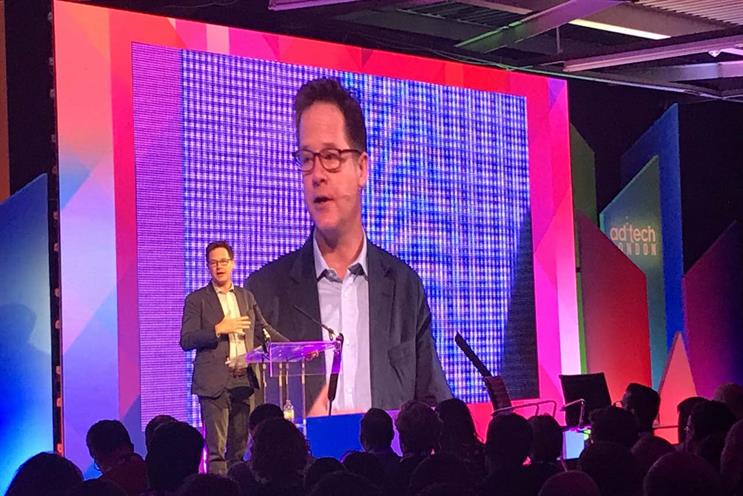
Speaking to an audience at ad:tech London, Clegg cited a number of gloomy predictions about the threat to jobs from automation. However, he added: "But a good many economists say what is happening on the ground doesn’t bear much relation to these predictions.
"If we take history as our guide, we should be very sceptical of the doomsayers. If technology was a net destroyer of jobs there would be a lot of people today sitting in the fields with nothing to do."
But the former Lib Dem leader did warn that if governments and business weren’t proactive in ensuring the coming changes worked for society, "we may be in for a new era that avoids mass unemployment but is characterised by continued insecurity, inequality and volatility".
Clegg had criticism both for the big five tech companies – Google, Apple, Amazon, Microsoft and Facebook – and for the legacy businesses that often seem to stand in opposition to them.
"It won’t have escaped anyone that the backlash against the tech companies is in full swing," he said. "The big five are in danger of being seen in the same light as bankers or even politicians.
"Some of that anger, for example on tax, is in my view both predictable and legitimate. The big firms have much more to do to prove that they are good global citizens.
"But in other areas they’re being unfairly caricatured, often by a print media that has an ulterior motive to discredit social media because of its success in attracting online advertising revenues that otherwise might be spent on newspapers."
The Times, owned by Rupert Murdoch’s News Corp, has published a series of stories this year about extremist and illegal content on YouTube that has led to a number of brands suspending advertising on the platform.
Clegg continued: "This standoff risks leaving all of us worse off. As a society, wide eyed enthusiasm for the novelties of tech is giving way to an angry curdled cynicism.
"That’s bad news for an industry that can only thrive when it can inspire people about the promise of change and bad news for society, if we shun the positive potential of change."
He also argued that AI had an image problem that needed to be resolved – suggesting that for most ordinary people, if they have heard of AI, it is likely to be in the context either of the threat to jobs, or because of moves to ban military robots.
"Part of the problem is the air of unreality surrounding the way the big tech companies sometimes talk about AI," he said.
"Humanity is not destined for a life of servitude under robot overlords. Technology must be deployed in the service of society, not the other way round."



.jpg)
.jpeg)

